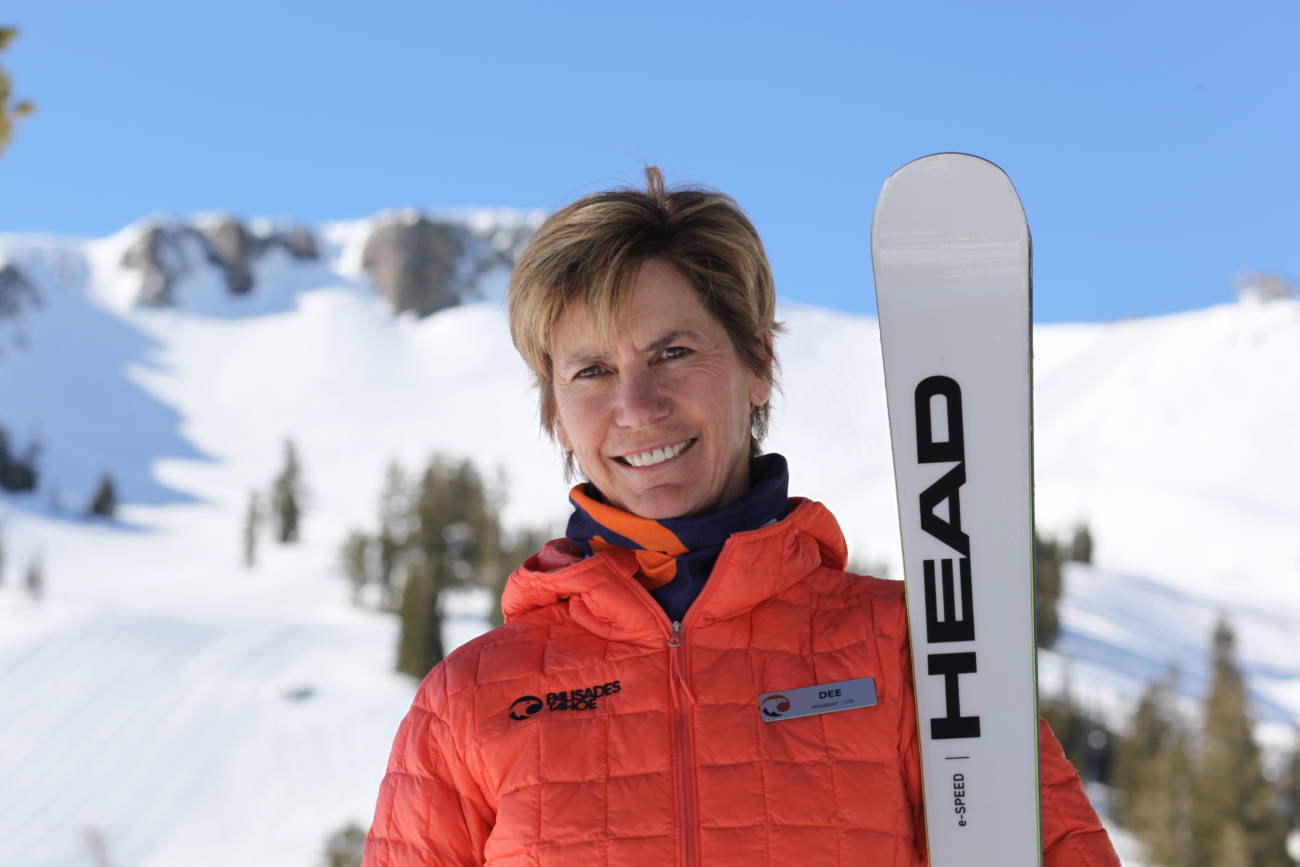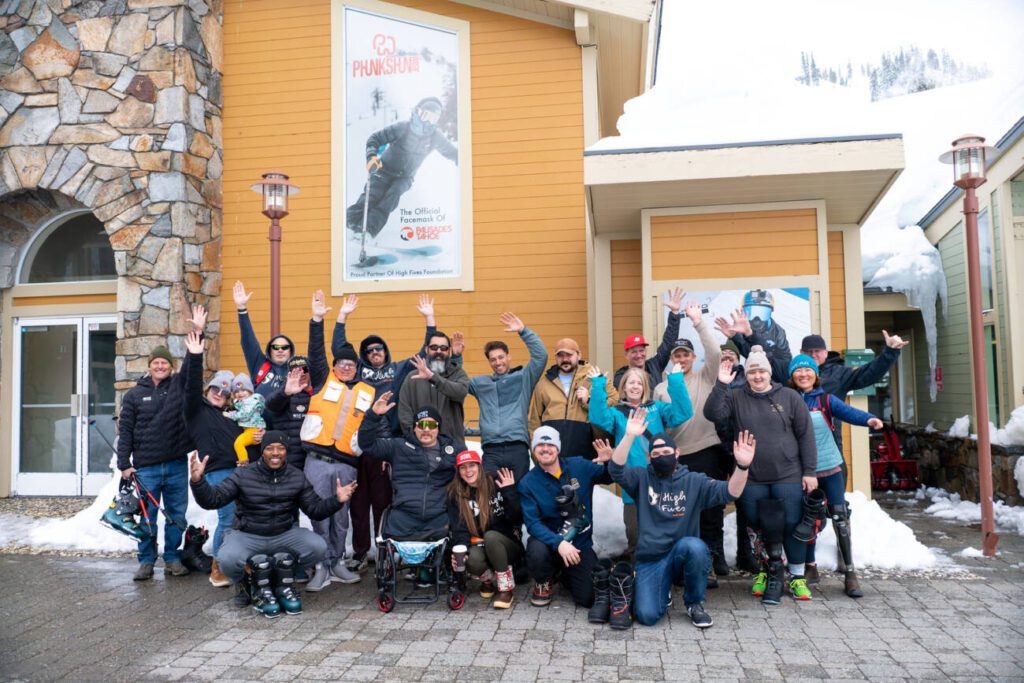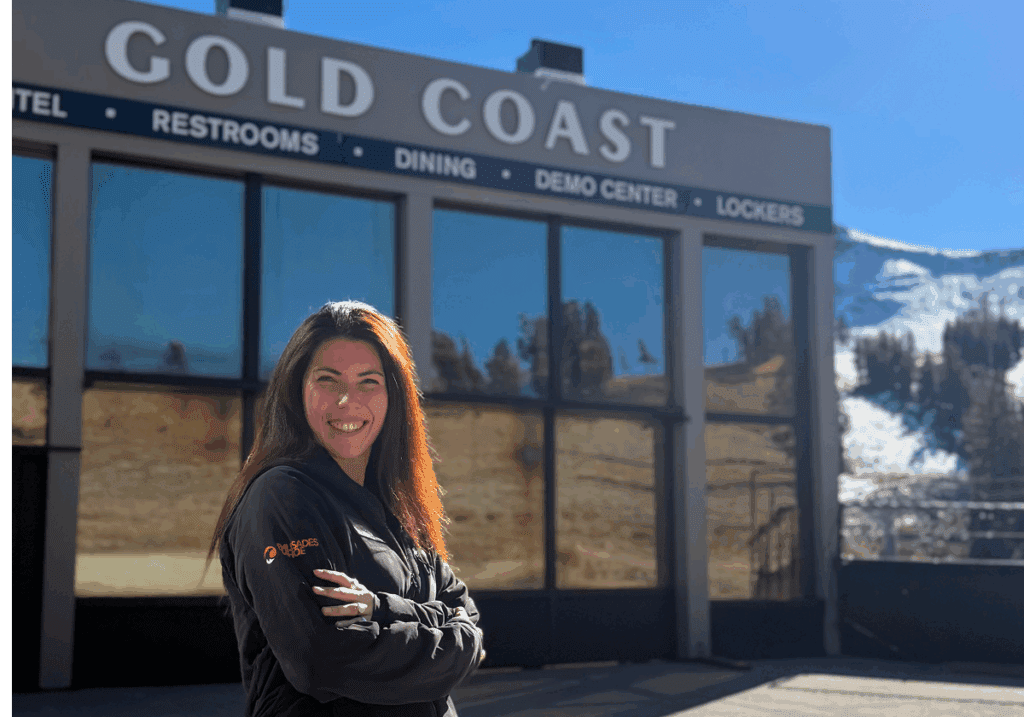March is a month where we get to celebrate women, so we wanted to take a moment to shine a light on our fearless leader, Dee Byrne, President & COO of Palisades Tahoe. Ski California recently interviewed Dee and asked what it means to be a female leader, in a typically male dominated industry, advice she’s received from other female leaders and even shares advice for those that are just starting out. Enjoy!
Is there a certain moment or experience that stands out to you as a career highlight or when you knew you’d “made it” as a professional in the ski industry?
No, there wasn’t a singular moment or experience. It took many years before I gained clarity that I could make a career in this industry. Quite frankly, the ski industry seemed frivolous, not serious enough to commit to as a career path, so I wrestled with whether to leave it or not for numerous years. On reflection now, I look back and know that when I entered management as the training supervisor for the Beaver Creek Ski School, I discovered I really enjoyed the challenges of management and of being on a management team. I found my niche.
What does it mean to you to be a female leader in an industry dominated by men?
It’s an extraordinary responsibility and opportunity. I didn’t recognize this in the 80’s and 90’s. My head was down just getting the job done. Certainly, there was some discussion back then that women were under-represented, but there wasn’t a call-to-action and in fact, it was better not to discuss, just do the work.
I’ve been very fortunate throughout my career to have worked (mostly) in inclusive environments where I felt respected and welcomed by “the guys.” I’ve had several very influential male mentors who I credit for my success and whom I can still lean on today.
Now, with all the societal changes and enlightenment, I recognize that I have not only a responsibility, but an opportunity to effect change in our industry. By being a good role model, by encouraging participation, by advocating, and by standing up against discrimination.

As you were coming up, who were the women you looked up to or saw as your mentors in the industry?
I started teaching skiing at age 14 at 49ᵒNorth in Washington. My supervisor was Betty Voltz. Betty and her husband Al were named to the United States Ski Demonstration Team in 1968. Not only were they beautiful skiers, but they were also beautiful people who took me under their wings and gave me my start in this industry. Betty was a tough boss who expected high performance. She encouraged me to be the best, no matter what I attempted, and was a role model I idolized in those impressionable years.
Role the years forward, and during my time with Vail/Beaver Creek, Susie Tjossem, VP of Sports and Recreation, became an important mentor. If I recall correctly, Susie was the first woman to rise to executive level leadership in Vail Resort from Operations. She has a brilliant mind for business and is one of the most creative individuals I have ever worked with. She also pushed me hard.
Two of the most influential women in my life are my teammates from the PSIA National Demonstration Team, Ellen Foster and Carol Levine. They made the Team in 1980. I joined them in 1984. We were three of a twelve-member squad. Ellen and Carol showed me the ropes and how to work within a very competitive, hard charging, male-driven environment. Among the many lessons, they helped me gain confidence and believe in myself.
“They taught me grit and resilience and how to get along with the guys without trying to be one.”
– Dee Byrne

What advice would you give to women and girls interested in pursuing a professional career in the ski industry?
First, go for it! I often tell women that this is a great industry that they can be successful in and that it needs more women in all ranks, and across all department, and that the time is now. With the current influence of DEI, let’s fill the pipeline with energetic, smart, skilled women. It is an opportune time to enter any area that interests you.
Continuing with mentorship, I advise women to find a mentor, someone you trust and can be open and honest about your beliefs, dreams and struggles and who supports your growth. We need at least one, if not many mentors, at different stages of our career and life.
Finally, practice and continuously develop emotional self-awareness. Unfortunately, there is still a stigma in business that women are too emotional compared to men. Don’t let that be your stigma; know yourself and learn how to let your emotions work for you in positive ways.





